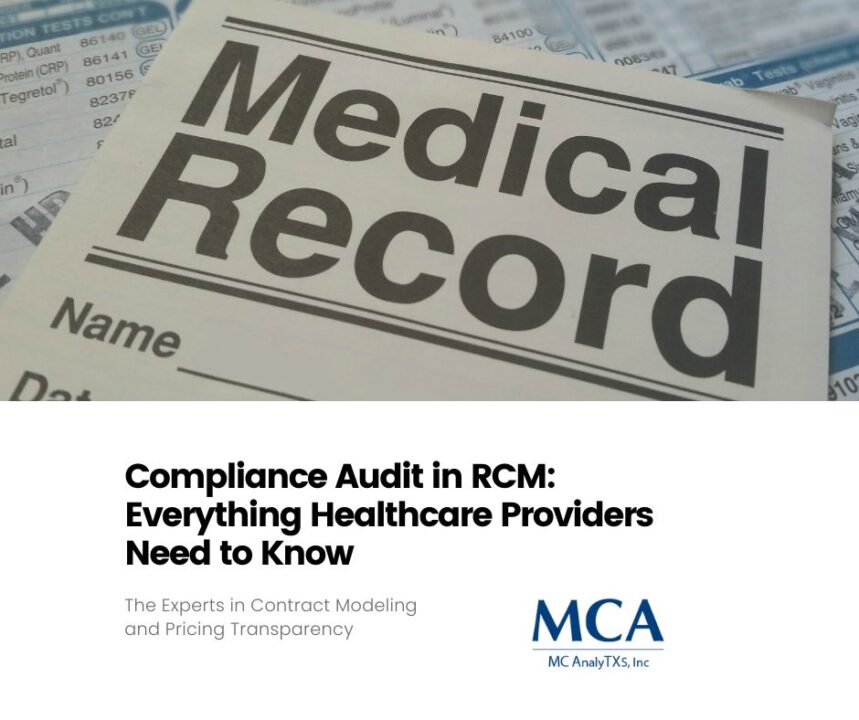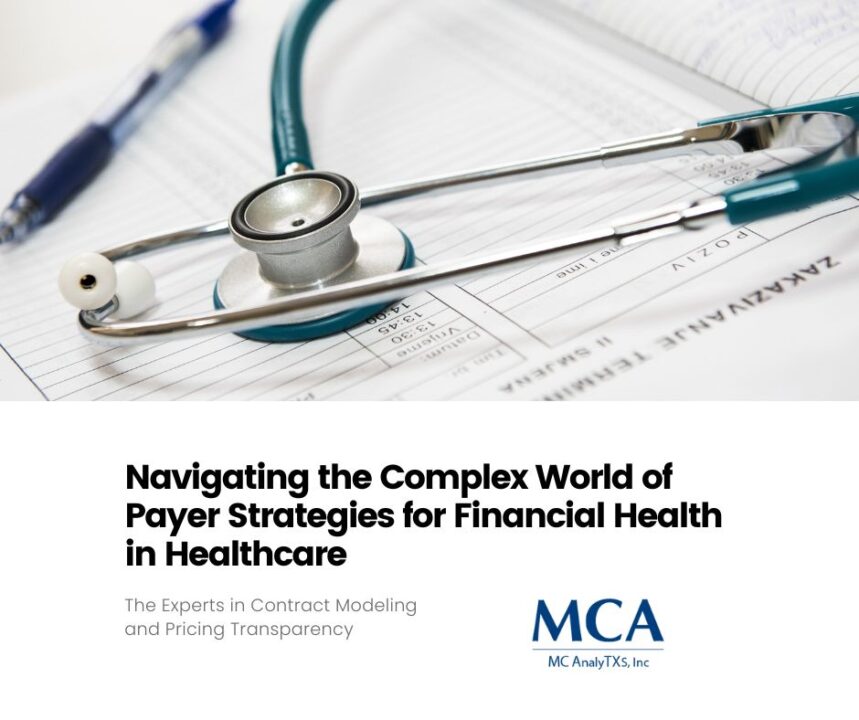
Navigating the Complex World of Payer Strategies for Financial Health in Healthcare
April 23, 2024
Contractual Allowance in Healthcare: What You Need to Know
April 30, 2024In an era where the healthcare sector faces unprecedented fiscal pressures, the role of the Hospital Chief Financial Officer (CFO) has evolved beyond the balance sheet. Now more than ever, hospital CFOs are at the forefront of driving strategic change to optimally manage hospital revenue, ensuring that the healthcare’s financial heart beats strong and steady. This article explores how hospital CFOs and finance professionals are innovating for optimal revenue integrity, a keystone in hospital operations.
Navigating the Maze of Revenue Integrity
In defining ‘revenue integrity,’ we find an intricate blend of compliance, accurate claim submission, and reimbursement processes. It’s the conscientious mesh of all financial systems and processes within a healthcare organization that aims to capture all legally entitled medical reimbursements. For hospital CFOs, this entails a meticulous focus on charge capture processes, billing accuracy, contract management, and compliance protocols.
The Role of Technology in Triage: To attain peak efficiency, technology becomes the CFO’s right-hand tool. Electronic Health Records, Revenue Cycle Management software, and advanced data analytics aren’t just IT fringe benefits; they’re the central nervous system for revenue integrity. They help in identifying potential revenue loss points and ensure charge processes are both efficient and precise.
The Battle with Revenue Leakages
Every year, hospitals worldwide lose billions of dollars due to poor financial processes, human error, or outdated systems. These revenue leakages directly undermine the continuity and quality of patient care, making them an intensifying concern for CFOs.
A Tiger Team’s Timely Response: To combat revenue leakages, leading medical centers are forming specialized teams that meticulously audit financial processes. From front-line practices in patient registration to back-office coding, these teams are ensuring that not a penny falls through the cracks.
The Pioneering Path of Predictive Analytics: A proactive approach aided by predictive analytics leads the charge. By forecasting trends and identifying potential vulnerabilities, hospitals can take preventive financial measures, ultimately fortifying their revenue stream against unexpected vulnerabilities.
Tools of the Modern CFO
Gone are the days when a good spreadsheet was the be-all and end-all. The CFO’s toolkit now includes business intelligence dashboards, financial artificial intelligence, and machine learning algorithms that provide invaluable insights to guide financial strategies.
Data-Driven Decisions at the Helm: By harnessing the power of data analytics, CFOs can make informed, strategic decisions. They can identify service lines that are most financially viable, optimize pricing strategies, and predict future revenue trends with a high degree of accuracy.
Process Automation Allies: Automation is revolutionizing revenue cycle management, streamlining processes, and reducing the chances of human error. This isn’t about replacing employees, but about empowering them to focus on tasks that demand a human touch.
Bridging the Gap Between Finance and Healthcare Delivery
A seamless collaboration between finance professionals and healthcare service providers is pivotal in maintaining revenue integrity. It’s about fostering a mutual understanding of each party’s needs and constraints, thus cultivating a shared commitment toward the financial well-being of the hospital.
Educational Empathy: Finance professionals and healthcare providers are participating in cross-training and education initiatives, enabling them to view the financial and medical aspects from each other’s perspectives. A diagnostic coder, for instance, could understand better the financial implications of their coding accuracy.
Alignment of Goals Through Incentive Programs: By aligning performance goals with financial incentives for both clinical and financial staff, hospitals can ensure that multiple levels of their workforce are working in tandem to maximize revenue and quality care.
Patient Portals and Transparent Billing
For the modern patient, understanding and engaging with their financial obligations is as important as understanding their diagnosis and treatment. Patient portals and transparent billing practices are not just customer service niceties; they are crucial elements in preserving revenue integrity.
The Empowered Patient: Online portals give patients access to their billing and payment plans, reducing the likelihood of disputes and enhancing the transparency of healthcare costs. This not only improves patient satisfaction but also accelerates the payment process, bolstering the hospital’s revenue cycle.
Clear, Concise Communication: Bills that are easy to understand and free from opaque medical jargon resonate with patients who are stakeholders in the financial health of the hospital.
Preparing for the Future
The rapid advancement of technology and changes in healthcare legislation signal that the role of the hospital CFO will continue to require strategic foresight and adaptability. Predicting and preparing for these changes is now a core competency for hospital CFOs.
Continual Training and Education: Keeping abreast of the latest tools and practices in financial management is essential, as is understanding the implications of evolving healthcare policies and reforms.
Investing in the Future: Hospitals that proactively invest in cutting-edge financial technologies and practices will find themselves not just surviving, but thriving, in an increasingly competitive and challenging healthcare market.
Conclusion
The management of revenue integrity in the healthcare sector has profound implications for the future of hospital finances and, more importantly, the quality of patient care. Hospital CFOs are at the vanguard of this financial transformation, leveraging technology, fostering collaboration, and preparing for an uncertain future. By innovating in revenue integrity management, CFOs are not only elevating the financial performance of their hospitals but also reaffirming their commitment to the communities they serve. It’s a challenging yet exciting time to be a CFO in healthcare, as the decisions and strategies you employ today will shape the industry for years to come.





